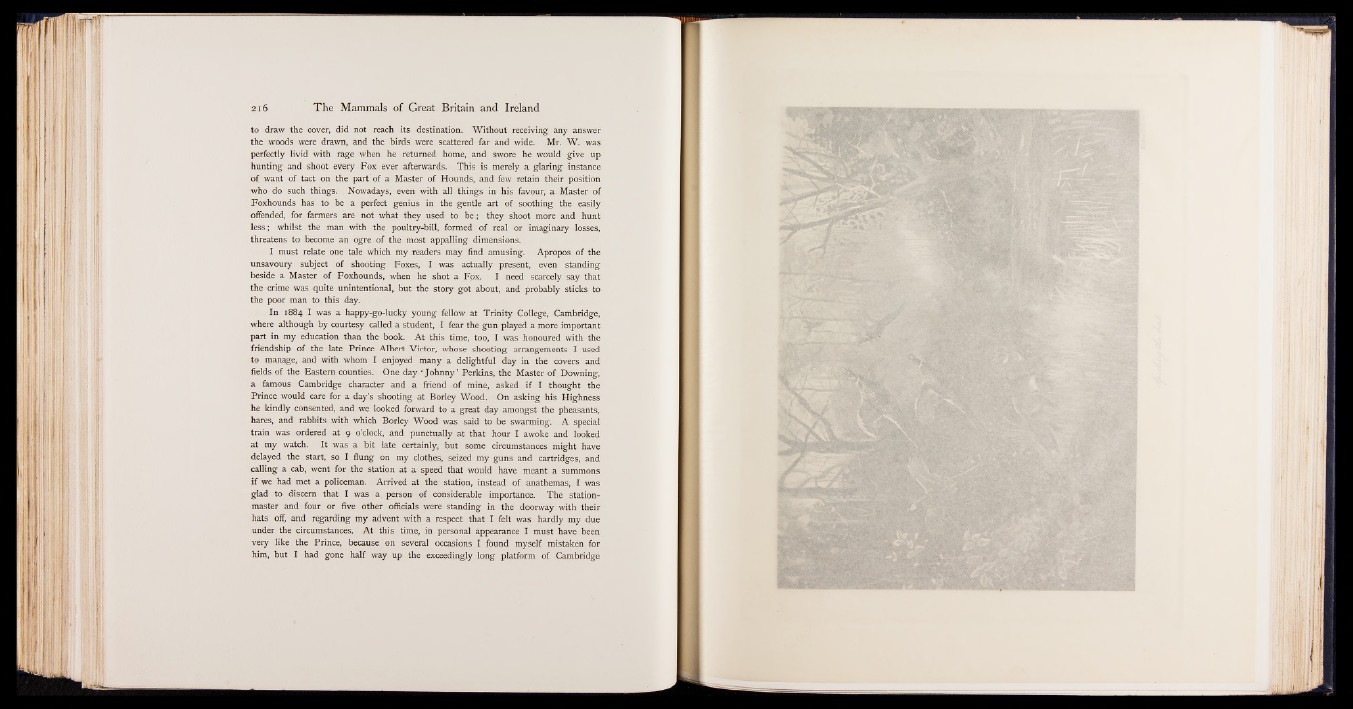
2 l 6 The Mammals of Great Britain and Ireland
to draw the cover, did not reach its destination. Without receiving any answer
the woods were drawn, and the birds were scattered far and wide. Mr. W. was
perfectly livid with rage when he returned home, and swore he would give up
hunting and shoot every Fox ever afterwards. This is merely a glaring instance
of want of tact on the part of a Master of Hounds, and few retain their position
who do such things. Nowadays, even with all things in his favour, a Master of
Foxhounds has to be a perfect genius in the gentle art of soothing the easily
offended, for farmers are not what they used to b e ; they shoot more and hunt
less; whilst the man with the poultry-bill, formed of real or imaginary losses,
threatens to become an ogre of the most appalling dimensions.
I must relate one tale which my readers may find amusing. Apropos of the
unsavoury subject of shooting Foxes, I was actually present, even standing
beside a Master of Foxhounds, when he shot a Fpx. I need scarcely say that
the crime was quite unintentional, but the story got about, and probably sticks to
the poor man to this day.
In 1884 I was a happy-go-lucky young fellow at Trinity College, Cambridge,
where although by courtesy called a student, I fear the gun played a more important
part in my education than the book. At this time, too, I was honoured with the
friendship of the late Prince Albert Victor, whose shooting arrangements I used
to manage, and with whom I enjoyed many a delightful day in the covers and
fields of the Eastern counties. One day * Johnny ’ Perkins, the Master of Downing,
a famous Cambridge character and a friend of mine, asked if I thought the
Prince would care for a day’s shooting at Borley Wood. On asking his Highness
he kindly consented, and we looked forward to a great day amongst the pheasants;
hares, and rabbits with which Borley Wood was said to be swarming. A special
train was ordered at 9 o’clock, and punctually at that hour I awoke and looked
at my watch. It was a bit late certainly, but some circumstances might have
delayed the start; so I flung on my clothes, seized my guns and cartridges, and
calling a cab, went for the station at a speed that would have meant a summons
if we had met a policeman. Arrived at the station, instead of anathemas, I was
glad to discern that I was a. person of considerable importance. The station-
master and four or five other officials were standing in the doorway with their
hats off, and regarding my advent with a respect that I felt was hardly my due
under the circumstances. At this time, in personal appearance I must have been
very like the Prince, because on several occasions I found myself mistaken for
him, but I had gone half way up the exceedingly long platform of Cambridge